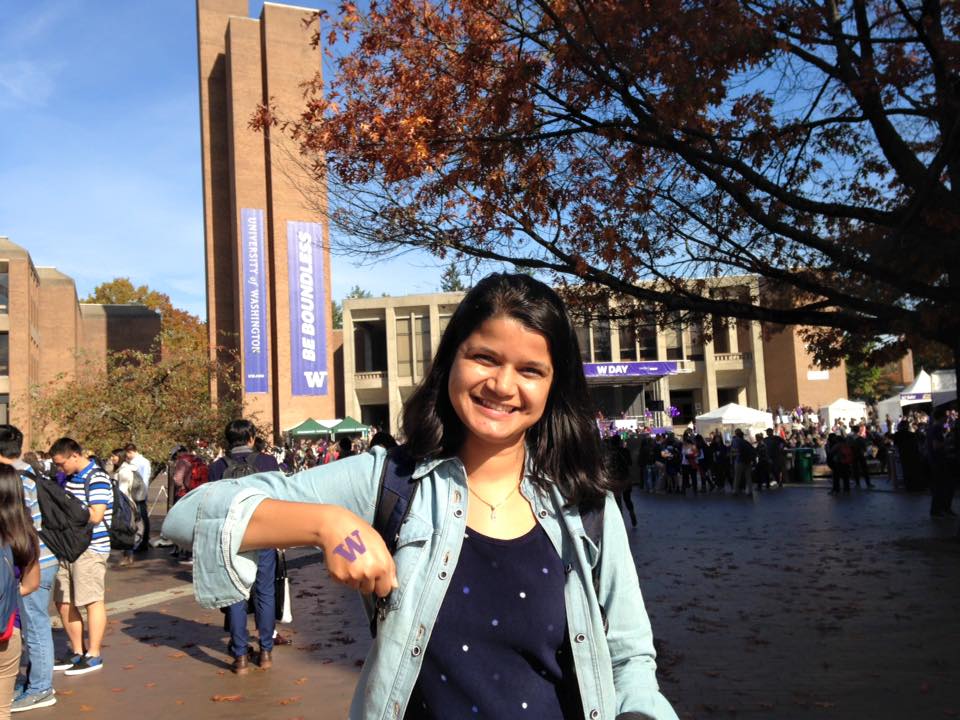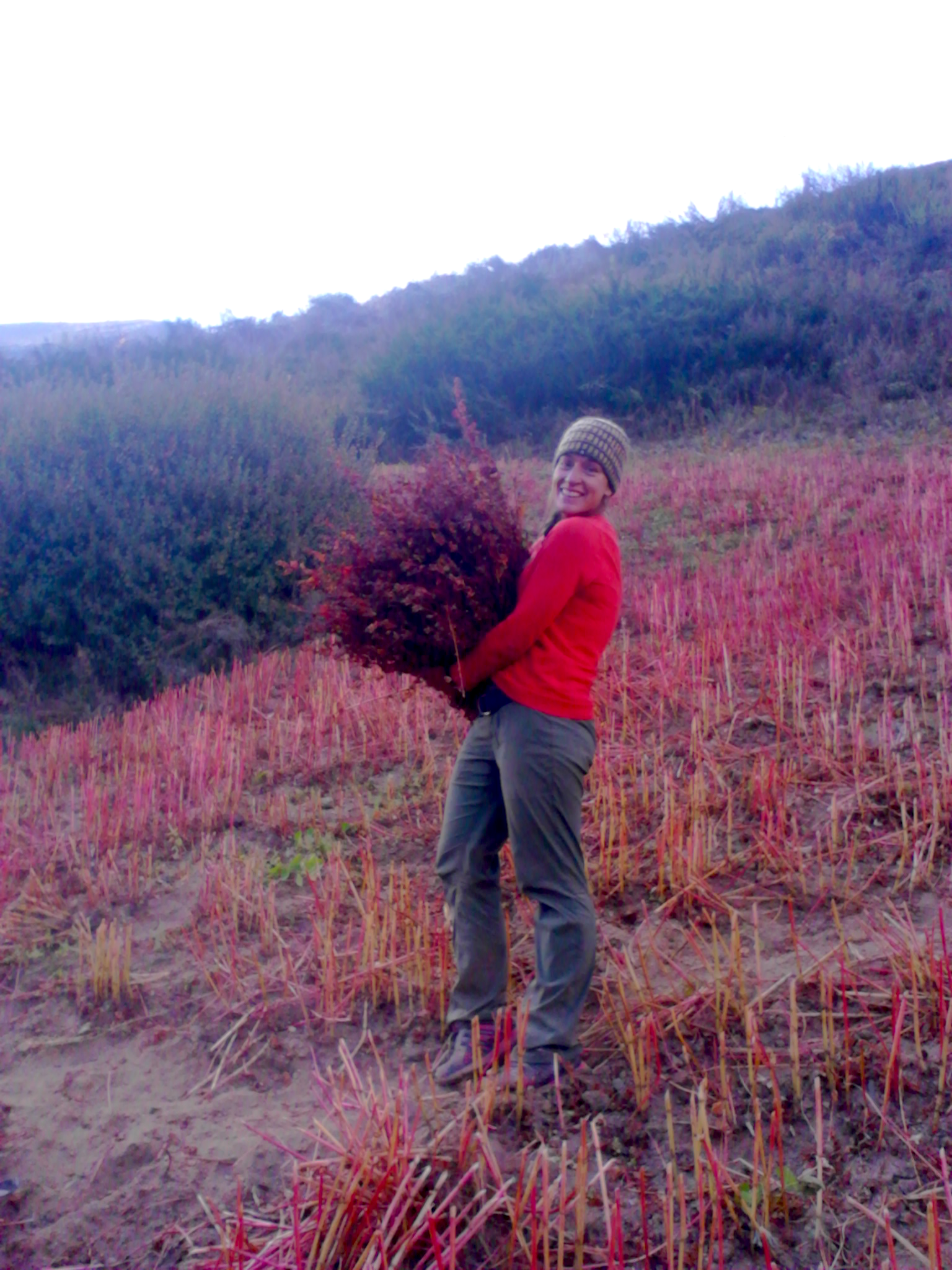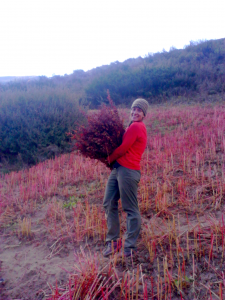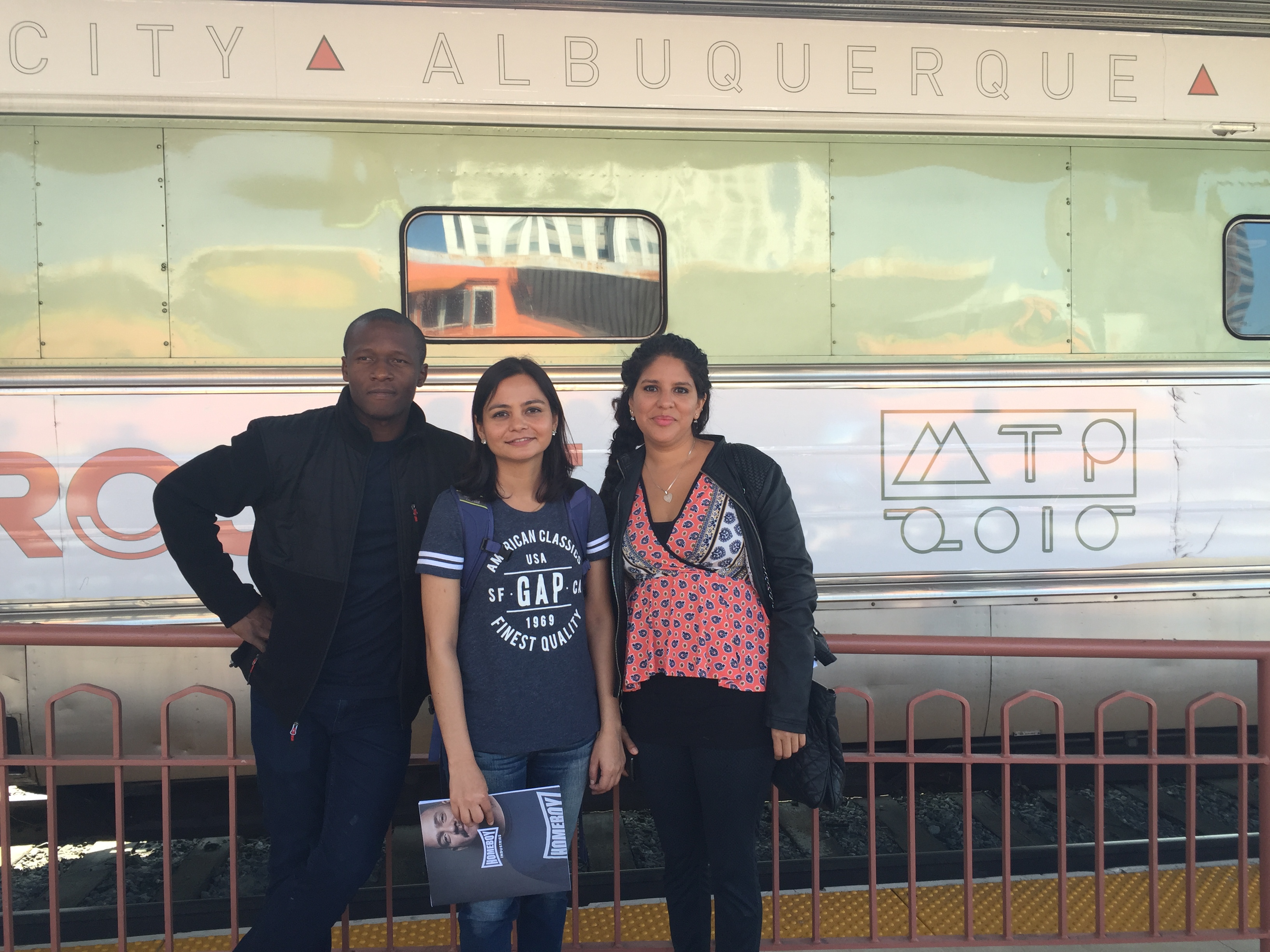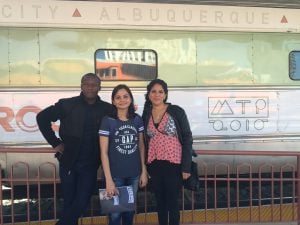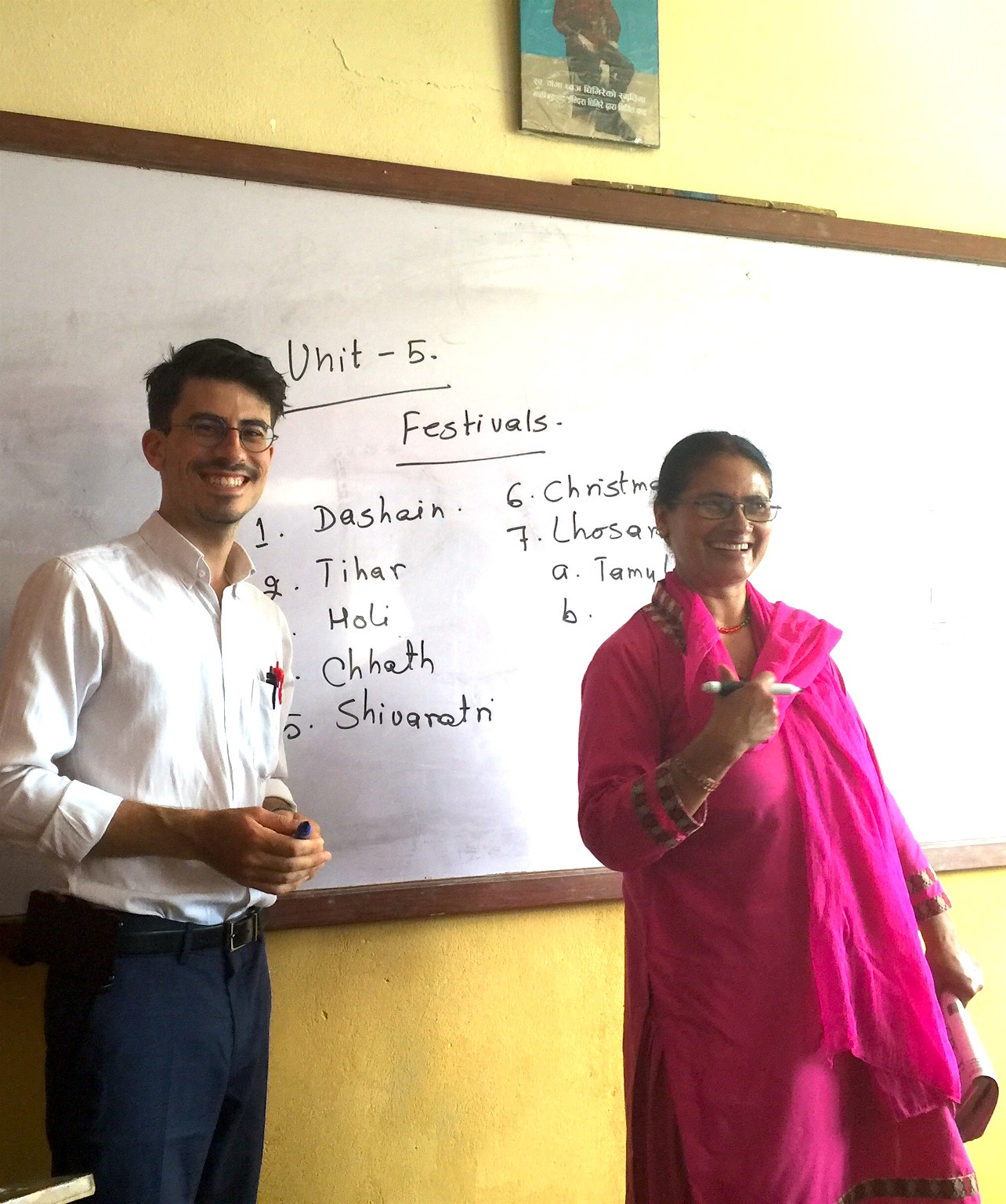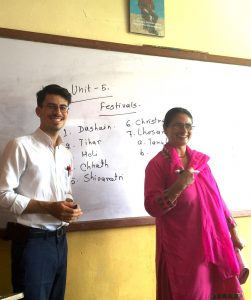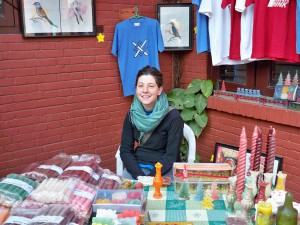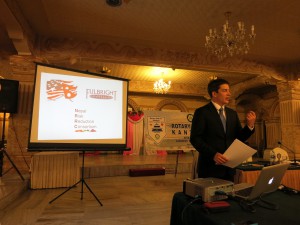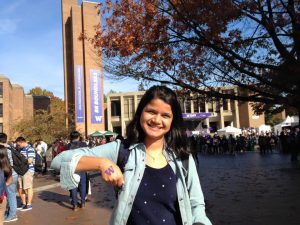
Anu Aryal, 2015-2017, Nepal, showing some husky spirit during University of Washington Day in Seattle
“I will show my culture during cultural events in school, from our national heritage, to festivals and foods.” When I was answering questions during my Fulbright selection interview back in Nepal two years ago, I was aware that one of the expectations of participating in the Fulbright Foreign Student Program is to fulfill the role of cultural ambassador. But little did I know that the role is not limited to festivals and events, but includes my day-to-day interactions with people in the United States.
Whenever I speak with people within my host institution, the University of Washington, or outside, I realize that not only do I represent myself, but my country as well. During dinners I would say “Sorry, I don’t eat meat, I am a vegetarian”, and the next question would be “Are most people in Nepal vegetarian?” Sometimes, even with strangers, when I am not talking about myself, I would get questions such as “Do people in Nepal speak English well like you?” I appreciated these curiosities and clarified, in my response, that many people in Nepal do eat meat, and not all Nepali speak English. Initially, I didn’t notice this much, but the pattern continued. I would say something about myself and then get asked if I represented a “typical Nepali,” and in most cases my answer was no.

